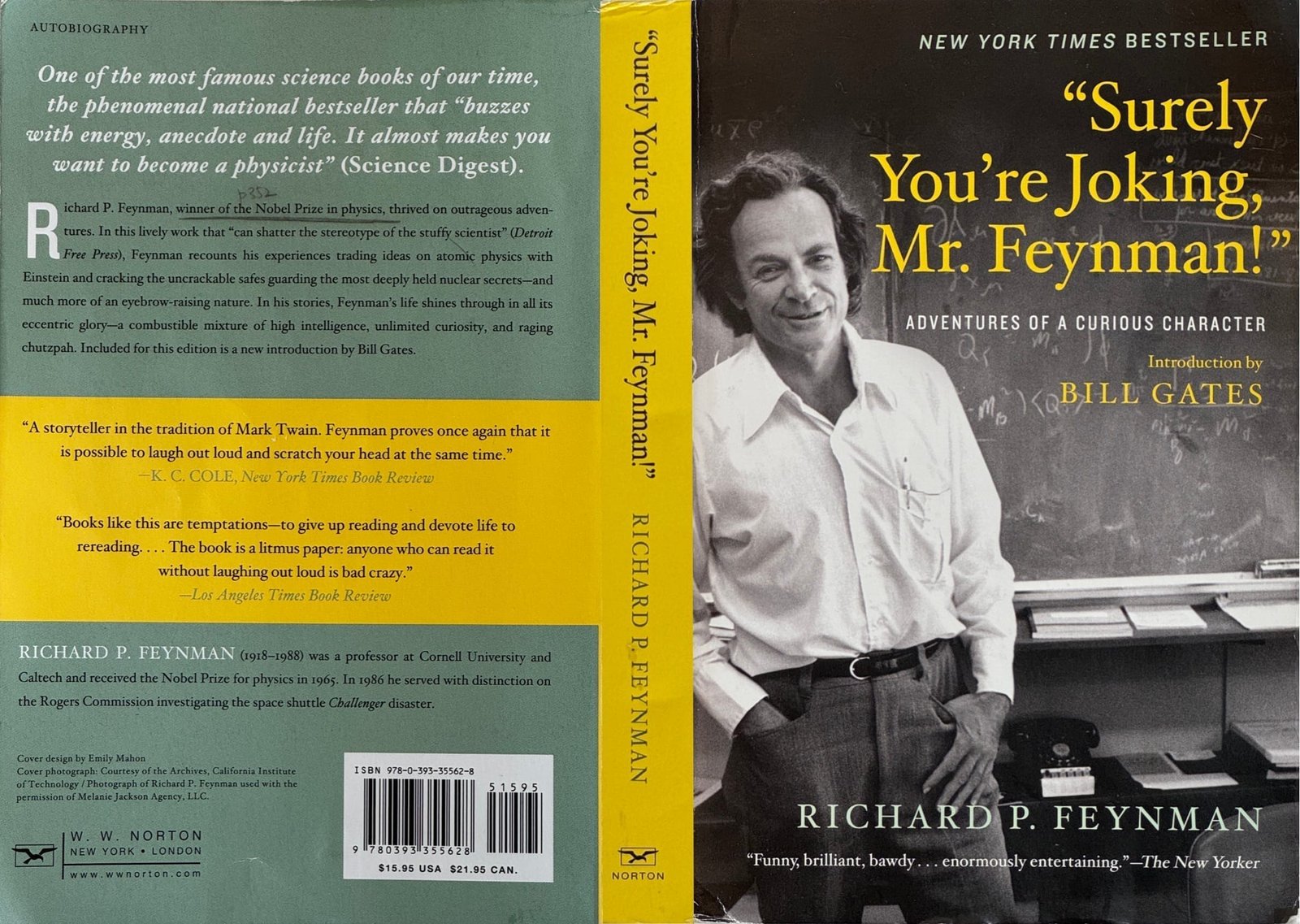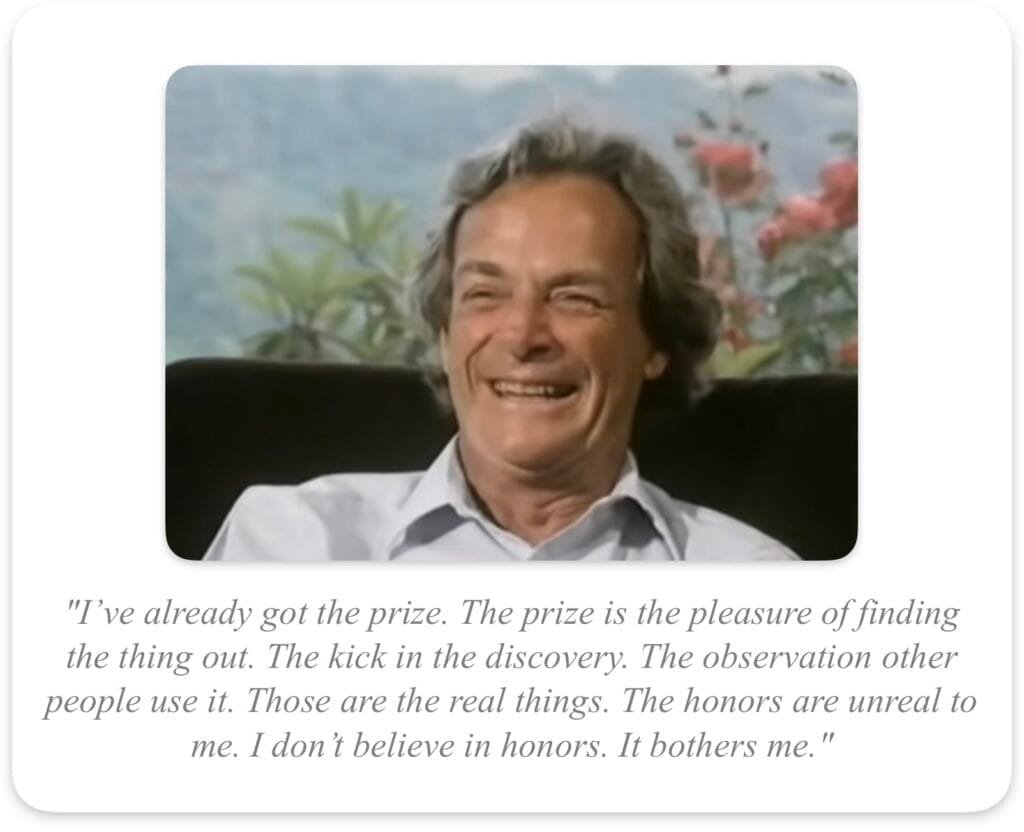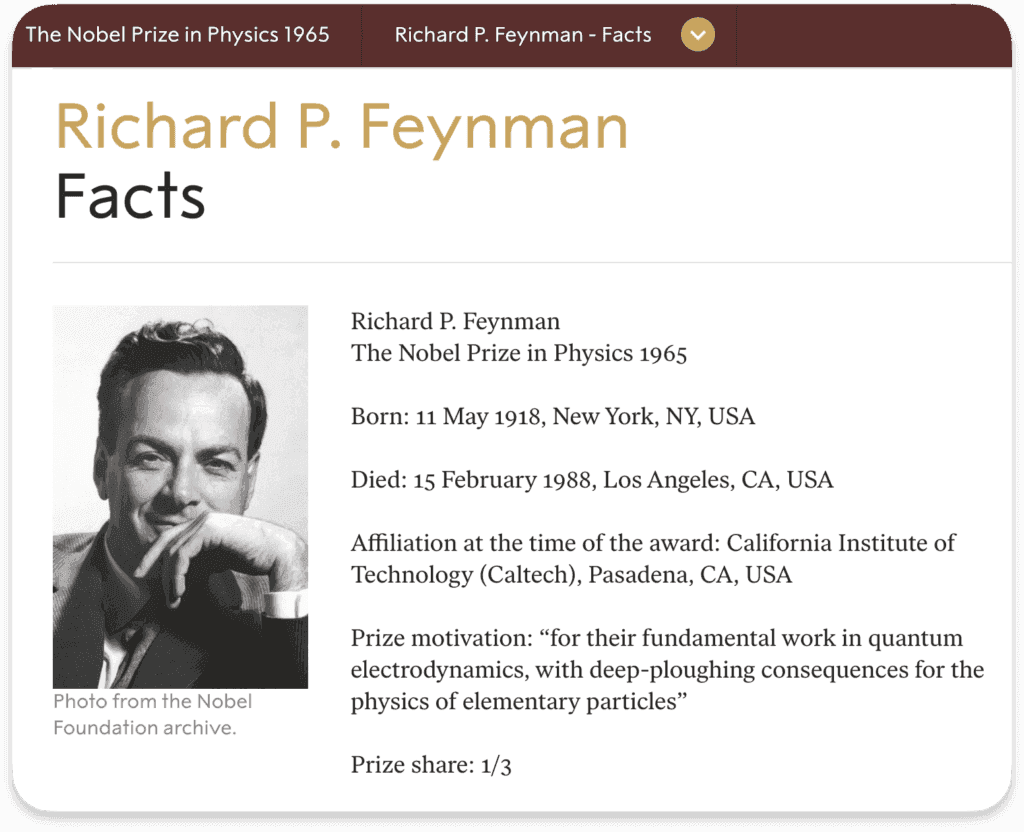
A familiar face was on the cover of a book that I happened to walk past by at the book store. I recognized the face from Youtube shorts (one of the rare cases where you get something out it!). I remember the guy was talking avidly about how to ask better whys, how there is no miracle. The rhythm and energy of his hand gestures had left a profound impression. He was illustrating the physics behind the ignition of fire. That guy was Richard Feynman – a guy I heard of before. Apart from the consistent hair style, the lasting playfulness in his face which I knew could only be the fossilization of years of smiling drew me in. I wonder that it must have been this pure joy or the pure pursuit of something fun just for the sake of it that lured his contemporaries willingly to novel bets and propositions. I can totally picture him saying “So, on alternate Sundays, I’ll give you a lesson in science, and you give me a lesson in art.”
It was apt timing too. I decided I should read more non-fiction books. I should learn from the greats. Halfway through, it became more apparent why I had an instinctive liking towards non-fiction essays, anecdotes. It’s just like I enjoy the actual nature more compared to a very good rendering in 3D. A fictional character is very precisely designed, so that it passes the captcha test so to speak. Illustrating a character on a shallow level is easy. There isn’t much to demonstrate anyway. Most real human captcha tests wouldn’t be able to ring the alarm for that. However, if the illustrations go in depth, especially encompassing extensive timelines and emotions, it HAS TO MAKE SENSE to pass the test. Most adults have established their database of real human interactions and variations of possible livelihoods out there. If something stands out of a fictional character, first it may be deemed interesting, if it goes too much, it becomes “Nah, that’s not gonna happen in real life” and you are taken aback. The streak of empathy established collapses. We need not worry for a non-fictional character’s anecdotes! A very good 3D image is the same. I know if I zoom in far enough the pixels will break. Also, I know for a fact that the undiscovered forces of the universe cannot possibly exist there and that’s a turnoff for me. There is nothing to be in awe of. A fictional character exists in a novel written by a mortal, a non-fictional character in one written by the Divine. Hence, I feel like I’m reading a fiction anyway, but better because the character is on the same dimension as I.
 I got sick and tired of having to decide what kind of dessert I was going to have at the restaurant, so I decided it would always be chocolate ice cream, and never worried about it again – I had the solution to that problem. Anyway, I decided it would always be Caltech.
I got sick and tired of having to decide what kind of dessert I was going to have at the restaurant, so I decided it would always be chocolate ice cream, and never worried about it again – I had the solution to that problem. Anyway, I decided it would always be Caltech.
In terms of the weight, the worthiness or the credibility of the story there are two vouchers. The first is the vouch of God as mentioned earlier. It happened. He happened. Richard Feynman happened. The second is the vouch of the being himself. The greatest commodity a mortal could possess is time. The fact that one devoted that precious commodity, in great amounts that amounts to a lifetime wins my trust. What would Feynman do if he were in my situation? Or any respectable figure? The first hurdle is that surroundings change. He never lived in 2023, in my room, in my situation. So some imagination needs to take place. Second hurdle is that he is not me. Therefore I might refine my question. My ultimate question is not “What would Feynman do if he were in my situation?” It is “What would Feynman do IF HE WERE ME in my situation?” Feynman, for example, decided that he would default to chocolate ice cream at all times to never worry about what to have for dessert. See, if the problem posed here were “What ice cream should I pick”, his answer to the former question would be chocolate ice cream. The answer to the latter would be any ice cream you would like, but if it doesn’t mean that much to you, you could consider defaulting to one. In essence I try to distinguish the “thinking engine” to preference and try to embrace the two separately.


I’d say Richard Feynman is as close as a man could get to keeping it real. The way in which he pursues his happiness is so unwaveringly adamant that I can see that it consistently and confidently dictates his decisions of all magnitude. It radiates his pleasant stubbornness to all around him as well as to the reader. Three relatively discrete sources of joy that I have identified are – tending to curiosity, laughing and making other people laugh, and chasing girls.
Written from scratch by Meston Ecoa
No assistance was received from any form of Artificial Intelligence.
No assistance was received from any grammar or vocabulary enhancing software.
Source
• Book cover photo: shot myself
• Chocolate ice cream quote: An excerpt from the book.
• R. Feynman on honors: Youtube
• R. Feynman Nobel Prize facts: nobelprize.org

